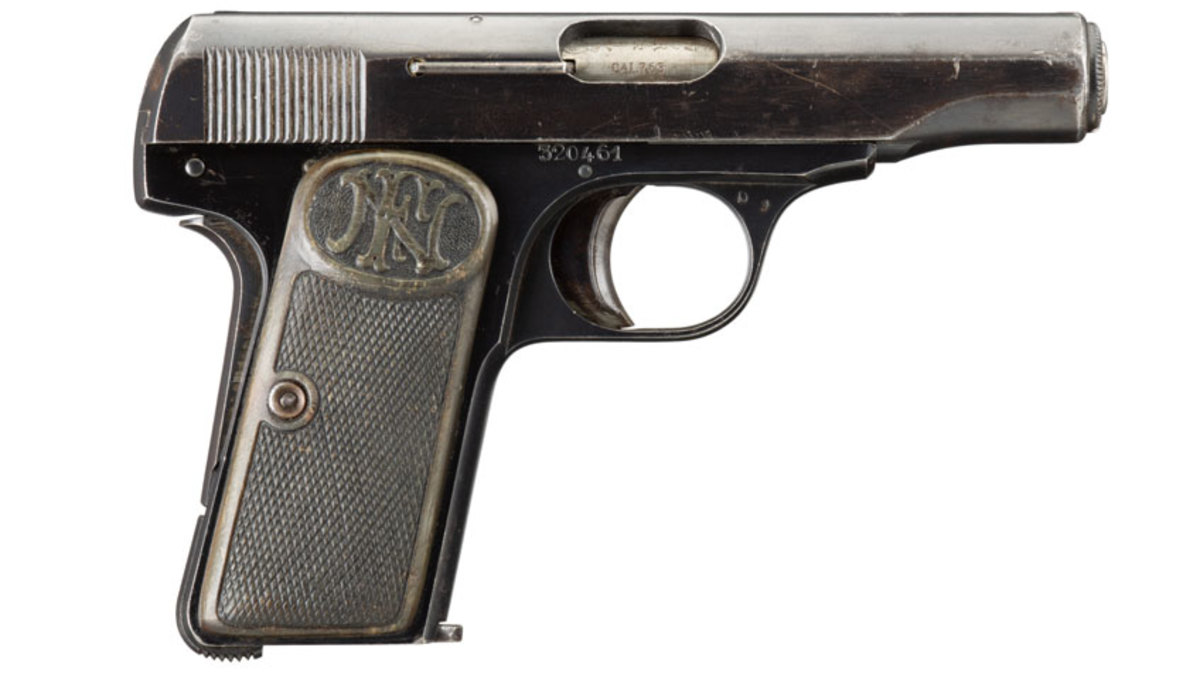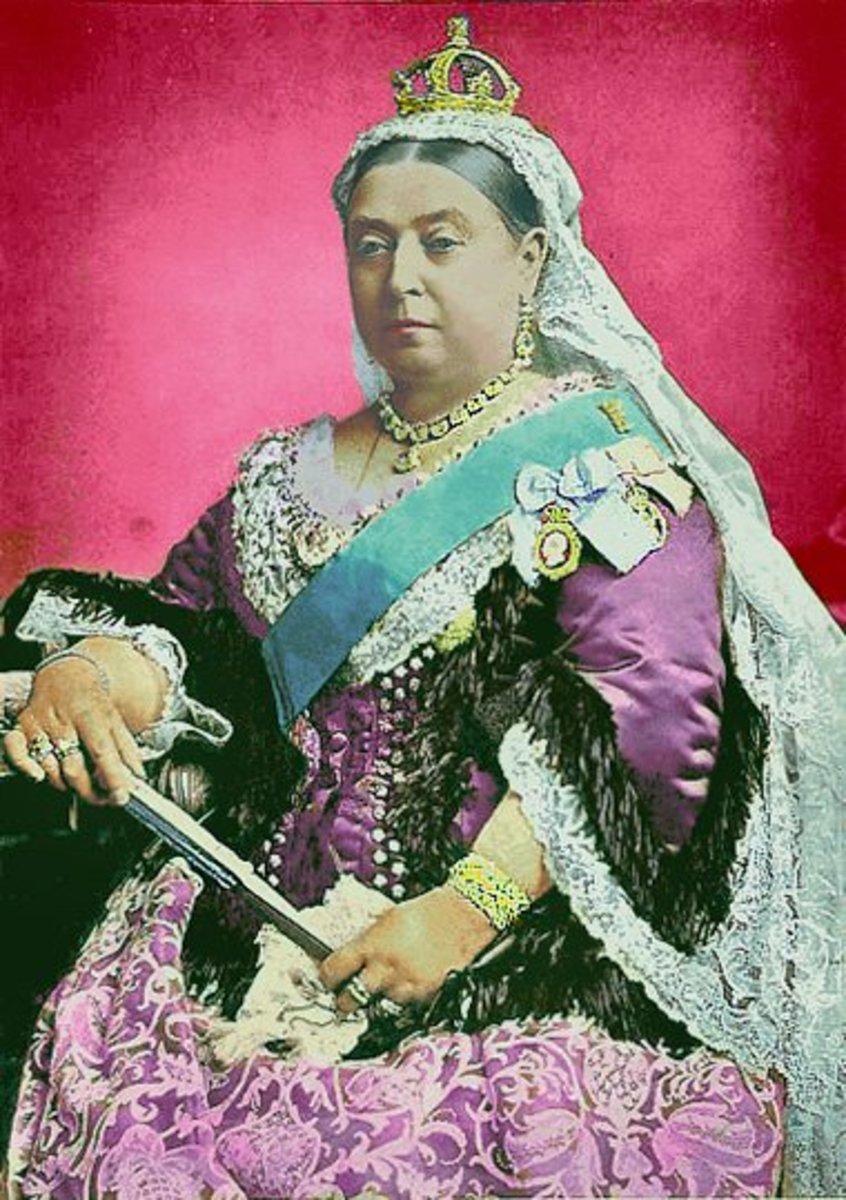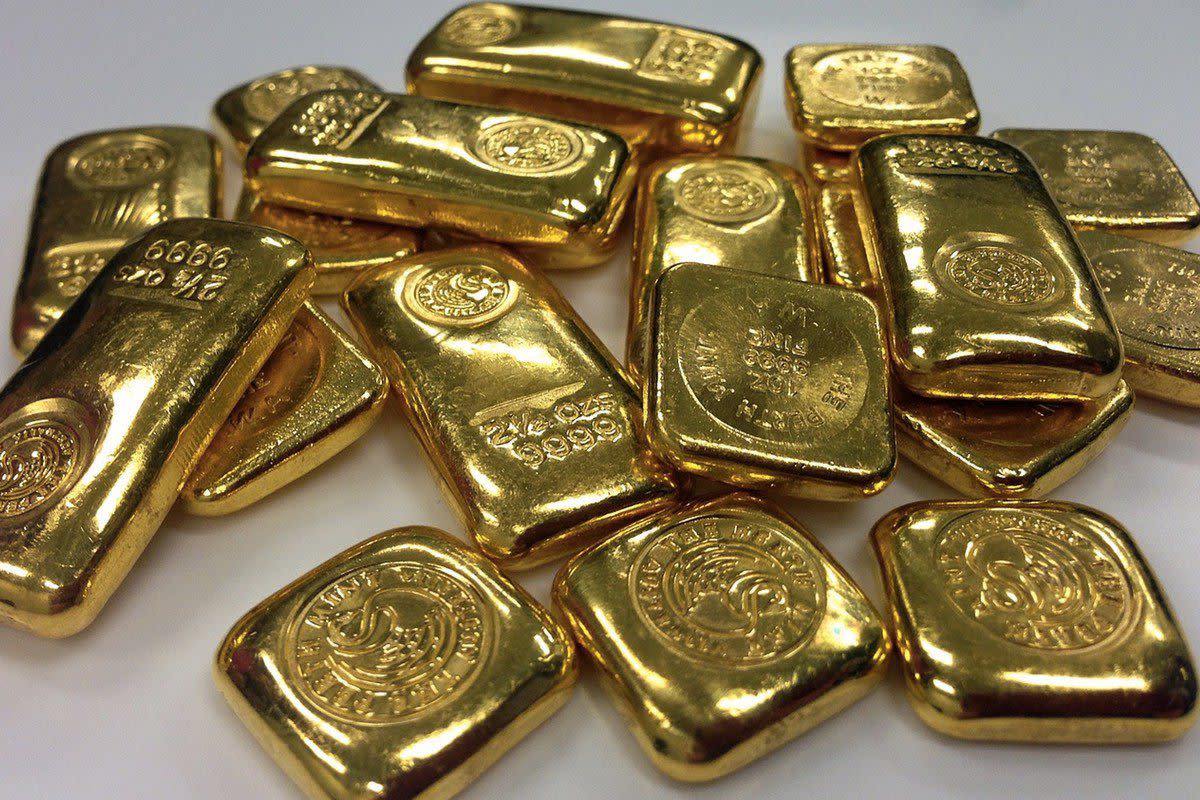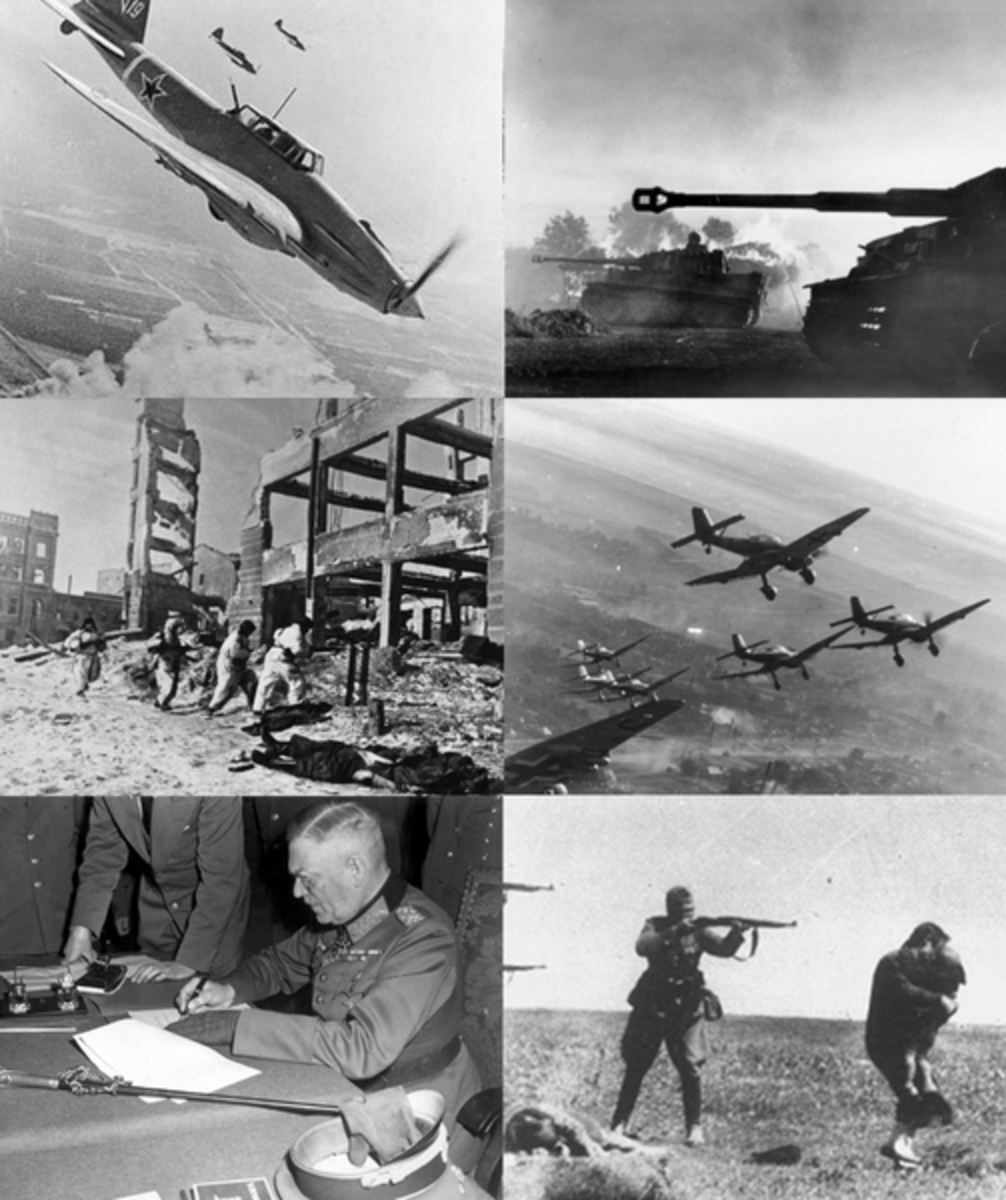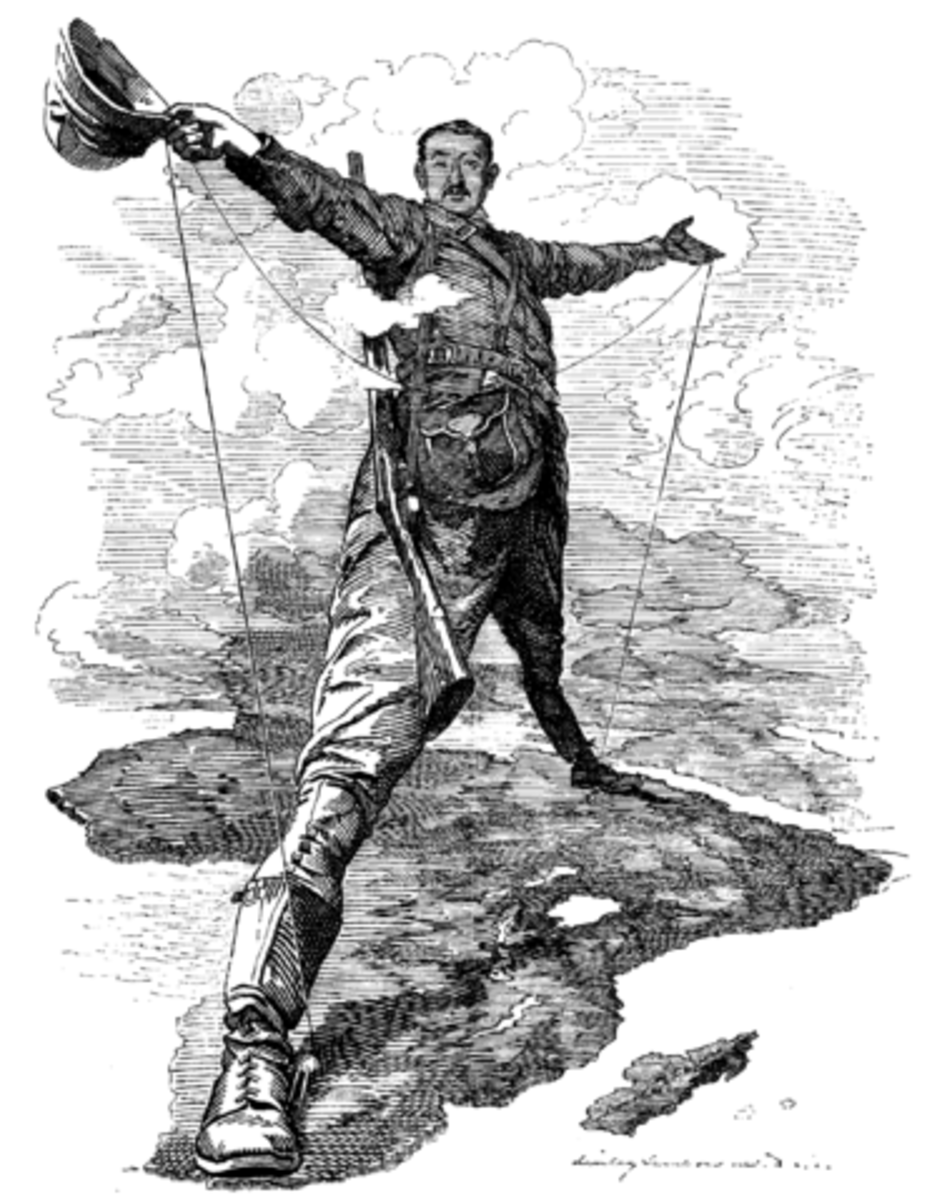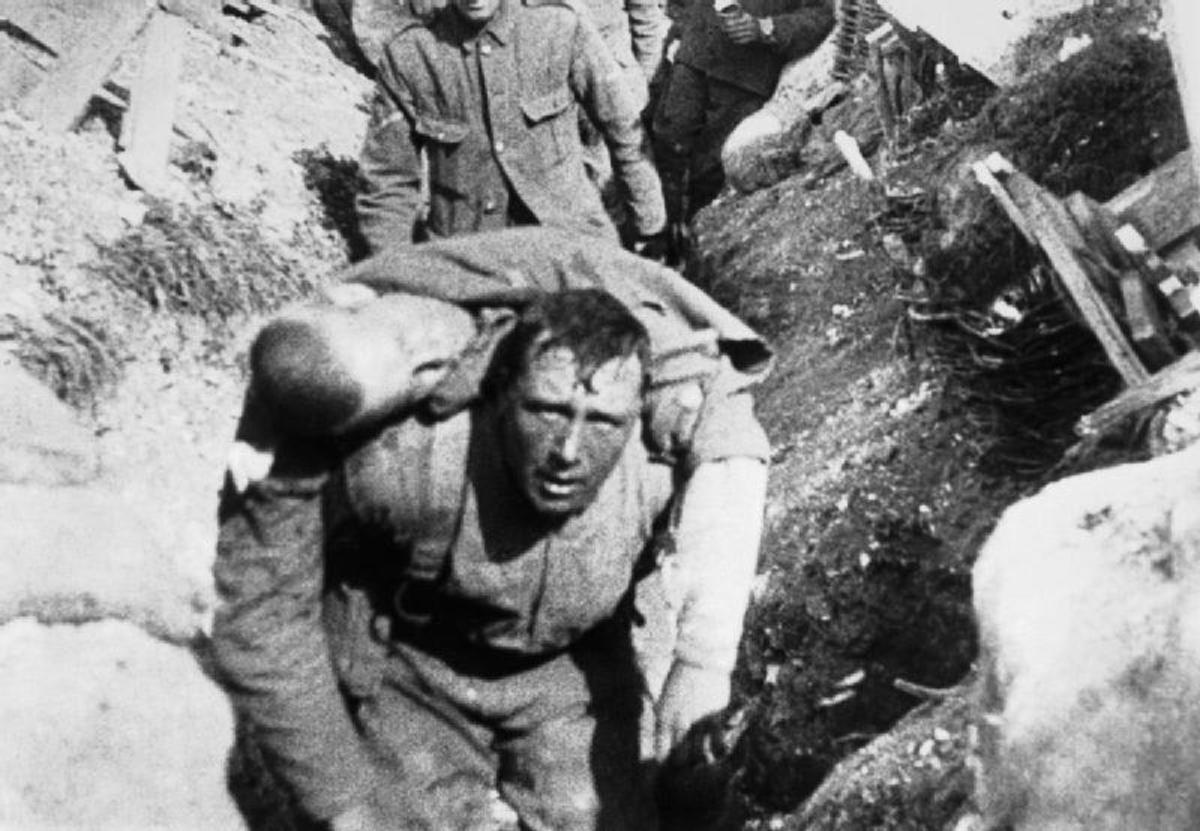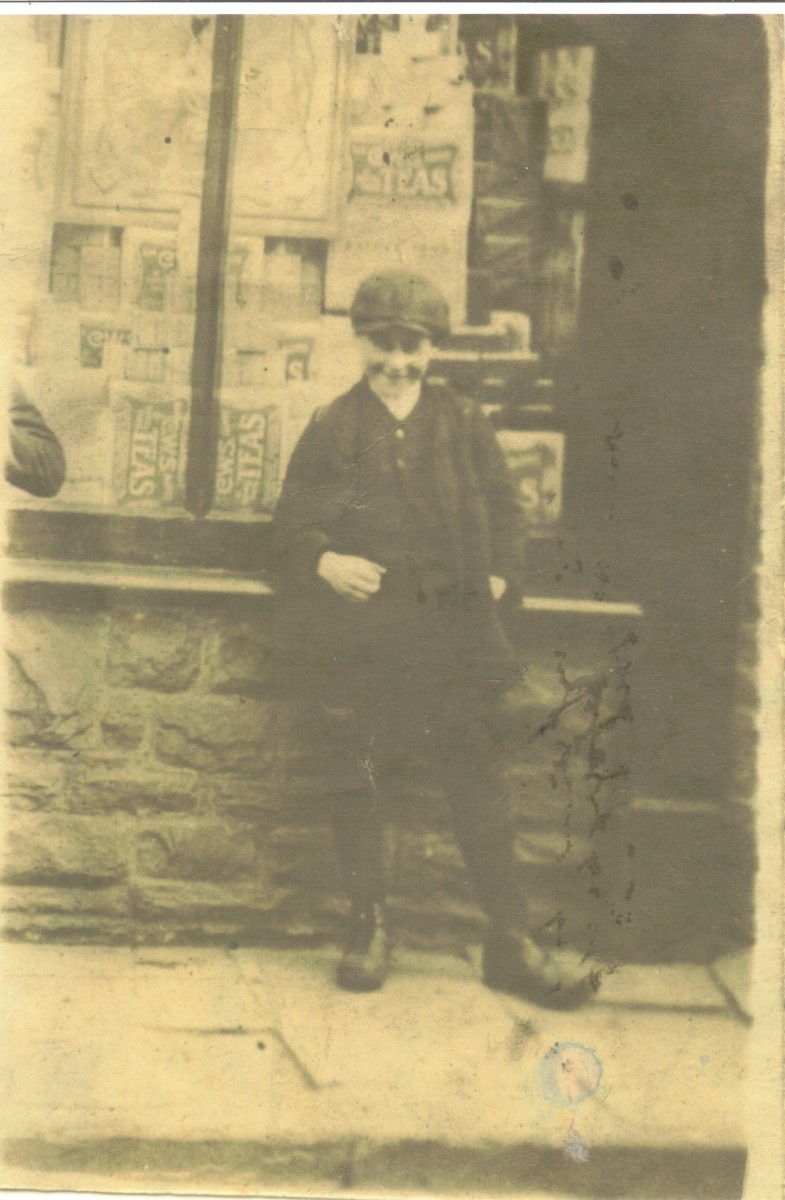- HubPages»
- Education and Science»
- History & Archaeology»
- History of the Modern Era»
- Twentieth Century History
The Sparks That Set the World Aflame: The Causes of World War One
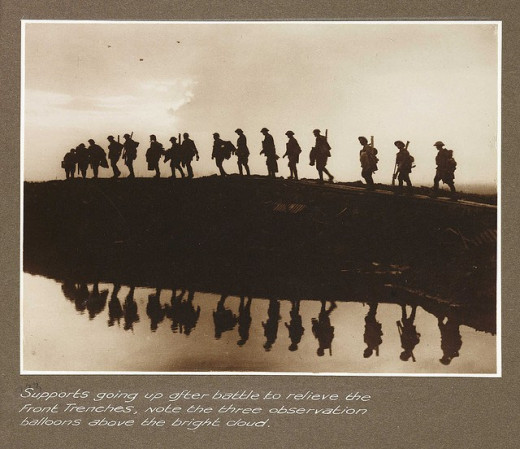
The Great War, also known as World War One, had multiple events leading to its beginning. Almost every country in Europe was involved in imperialism and had alliances, which led to nationalism, militarism, and competition between countries. This all came to a head when the Austrian Archduke Franz Ferdinand was assassinated by a Serbian nationalist, which caused Austria-Hungry to go to war with Serbia, and soon their alliances joined and the world was at war. Although the Archduke’s assassination is often credited to the start of World War One, there were many other complications that all contributed to the start of the war.
Imperialism
One of the main causes of the Great War was European imperialism. Britain, France, Belgium, and Italy were expanding their influence by conquering undeveloped and third world countries to establish colonies in Africa. The purpose of the colonies was claimed to be to improve the lives of the people in those countries by helping them develop, industrialize, and introduce them to the European’s religions, but the colonies were actually used for economic benefits and creating a basis of influence across the globe. The increasing desire to establish colonies in Africa created tension between the European powers. As African countries were being conquered, the European countries were being pressured to have the most colonies before all of Africa had been colonized. Competition for the most colonies increased and created immense tension, only to be made even greater when Kaiser Wilhelm of Germany began trying to claim colonies for Germany[1]. The tension between the competition for colonies created intense nationalism and support for the citizens and politicians in their own countries.
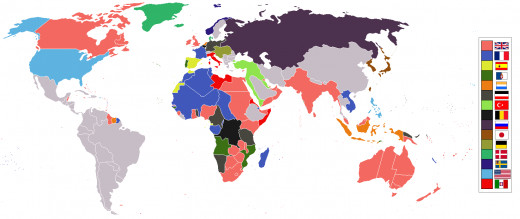
By the year 1900 countries have been competition for colonies for years, and the people gave their unconditional support and patriotism for their countries. This nationalism was fuel to the increasingly growing desire for war. Each country had its own reasons for nationalism, for example, Germans greatly desired for Germany to be a world power, especially since they were left as a group of separated states after the Congress of Vienna in 1815 until the country was unified in 1871[2]. France wanted revenge for the loss of land in Alsace and Lorraine, and Britain wanted to see its Empire spread as far as possible[3]. As countries competed, their people unconditionally supported them and furthered the desire for war. Nationalism fueled the desire and support for war so much that when war was declared, crowds cheered in Berlin, Vienna, and Paris. Such strong support for their countries and for war caused for great military growth for all countries involved.
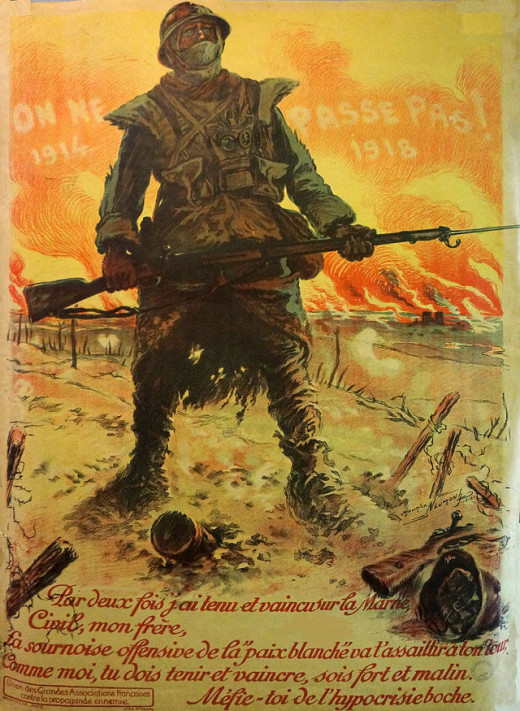
Nationalism and Alliances
Because nationalism was so high and in support of war, the European countries built up their armies to both show force and power, and prepare for the inevitable war. Between 1870 and 1914 many countries, such as Germany and France more than doubled the size of their army. An arms race ensued with countries competing for the larger military and the newest technology, such as battleships. Once Britain introduced the “Dreadnought” battleship, Germany soon followed with their own battleships to build a rivaling navy. By the beginning of the war in 1914, Britain had 700 thousand soldiers and 185 warships, France and Russia both had over 1.1 million soldiers, and Germany had over 2 million soldiers ready to fight for their country[4]. With such high tensions, nationalism, and great armies, the European countries started to form alliances to protect each other and their colonies.
With war on the verge and nerves strung high, alliances began to form to show power and protect interests. Starting in 1879, Germany formed an alliance with Austria-Hungry to defend themselves against Russia, and in 1882 Italy joined Germany and Austria-Hungry in the alliance against Russia, and thus the Triple Alliance is born, which is also referred to as the Central powers. In response, France and Russia formed an alliance to protect themselves from Germany and Austria-Hungry in 1894. In 1907 Russia and Britain made an alliance together, and in 1907 France, Russia, and Britain officially signed an alliance creating the Triple Entente, and signed to not sign for peace separately due to increasing threats from Germany[5]. The Triple Entente would later be called the “Allies” during the war, with the addition of the United States in 1917. These alliances would be the reason most of the Europe and the world would be at war in the summer of 1914.
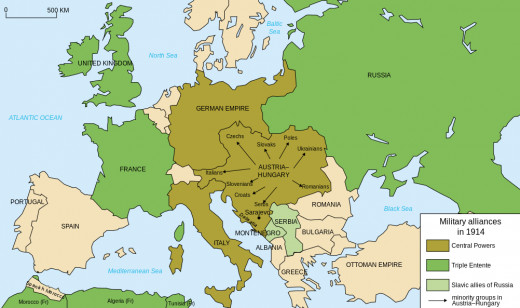
Assassination of Archduke Franz Ferdinand
On June 28, 1914 all of the tensions around Europe would come to a head when the heir to the Austria-Hungarian Empire, Archduke Franz Ferdinand, was assassinated in a display of Serbian nationalism. June 28 was revered as a Serbian nationalist day since it was the anniversary of Serbia being invaded and losing its independence in 1389. More recently the Bosnian region the Archduke visited was annexed by Austria-Hungry in 1908, so the crowd was not very excited when the Archduke of Austria-Hungry visited to inspect the armed forces in a show of imperial force. On June 28, 1914, Archduke Franz Ferdinand and his wife traveled to Sarajevo to inspect the imperial armed forces in Bosnia and Herzegovina. They were traveling in an open car with little security, and seeing an opportunity Serbian nationalist Nedjelko Cabrinovic threw a bomb at their car. Fortunately for the couple, the bomb rolled off the rear of the vehicle and only injured one of their security officers and a few bystanders when it exploded. The couple continued their trip, and later in the day they decided to visit the injured officer. On the way their vehicle took a wrong turn at an intersection, where Cabrinovic’s fellow nationalist 19-year-old Serbian Gavrilo Princip, happened to be loitering. Princip saw his opportunity, ran up to the car, fired his pistol and hit the Archduke and his wife. Princip then attempted to shot himself, but was attacked by the crowd and wrestled by the police. The Archduke and his wife’s car drove to seek help, but the couple died within the hour[6]. Their deaths would set off a great chain of events that would very quickly start World War One.
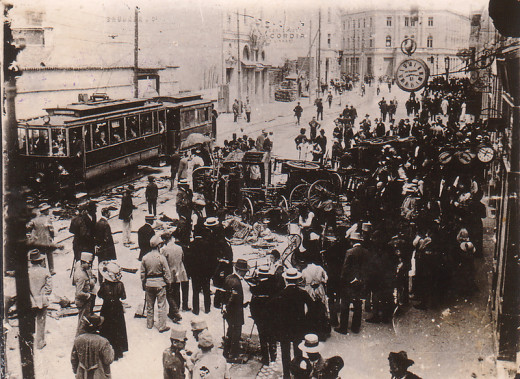
The assignation of Archduke Franz Ferdinand was the final straw, and the events of World War One were set into motion and could not be stopped. The Austrians saw the assassination as the perfect motive to go to war and take over their long time enemy, Serbia. A week after the assassination, July 5th, Germany assured Austria-Hungry that they would honor their alliance and support them in any measure against Serbia. On July 23rd Germany and Austria-Hungry issued Serbia an ultimatum, and on July 28th they rejected Serbia’s offer and declared war. Russia immediately partially mobilized their troops in defense of Serbia. Germany offered an ultimatum to Russia to stop their troops, and to France to stay neutral by giving up a fortress on their border. Both countries refused and Germany declared war on Russia on August 1st, and France two days later. Britain offered Germany at attempt at peace if they stopped their advance towards France, but Germany refused and on August 4, 1914 the world was at war[7].
The World at War
In conclusion, there were many more underlying causes to World War One that all came to a head once the Archduke Franz Ferdinand was assassinated. Imperialism led to competition and countries feeling superior. This competition led to immense nationalism and unconditional support by the people for their countries as they expanded their empires. The mixture of expanding imperial empires with overwhelming nationalism creates a strong desire and need for a huge military. As the competing countries built their militaries, threats and alliances were made, and most of the world was soon divided. On June 28, 1914 the world saw a perfect opportunity to go to war when the Austria-Hungarian Archduke Franz Ferdinand was assassinated by a Serbian nationalist. This tragic event allowed a devastating chain of events into motion, which would cause one of the most devastating wars the modern world has ever seen, and would forever change the nature of modern warfare. Tanks and machine guns would rule the battlefield as airplanes ruled the skies above. Gas blinded and killed countless young men, and the world was forever changed as a generation would never return home and the land would forever bear scars of trenches and bombs.
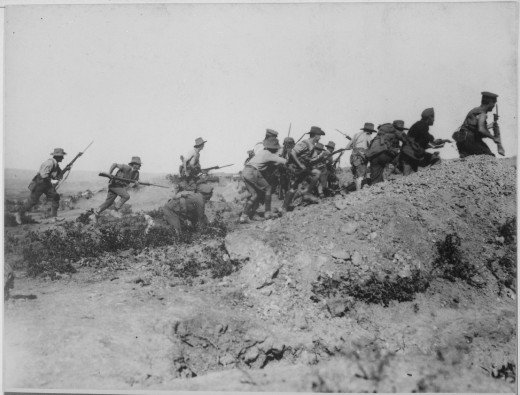
References
[1] "Causes of WWI - Background." Causes of WWI - Background. N.p., n.d. Web. 23 Nov. 2014. <http://www.johndclare.net/causes_WWI2.htm>
[2] "World War One - Causes." From Ancient Times to the 20th Century. N.p., n.d. Web. 23 Nov. 2014. <http://www.historyonthenet.com/ww1/causes.htm>.
[3] "European History." Causes of the First World War. N.p., n.d. Web. 23 Nov. 2014. <http://www.historyhome.co.uk/europe/causeww1.htm>.
[4] "Causes of WWI - Background." Causes of WWI - Background. N.p., n.d. Web. 23 Nov. 2014. <http://www.johndclare.net/causes_WWI2.htm>
[5] "World War One - Causes." From Ancient Times to the 20th Century. N.p., n.d. Web. 23 Nov. 2014. <http://www.historyonthenet.com/ww1/causes.htm>.
[6] “Archduke Franz Ferdinand Assassinated." History.com. A&E Television Networks, n.d. Web. 24 Nov. 2014. <http://www.history.com/this-day-in-history/archduke-franz-ferdinand-assassinated>.
[7] "European History." Causes of the First World War. N.p., n.d. Web. 23 Nov. 2014. <http://www.historyhome.co.uk/europe/causeww1.htm>.

